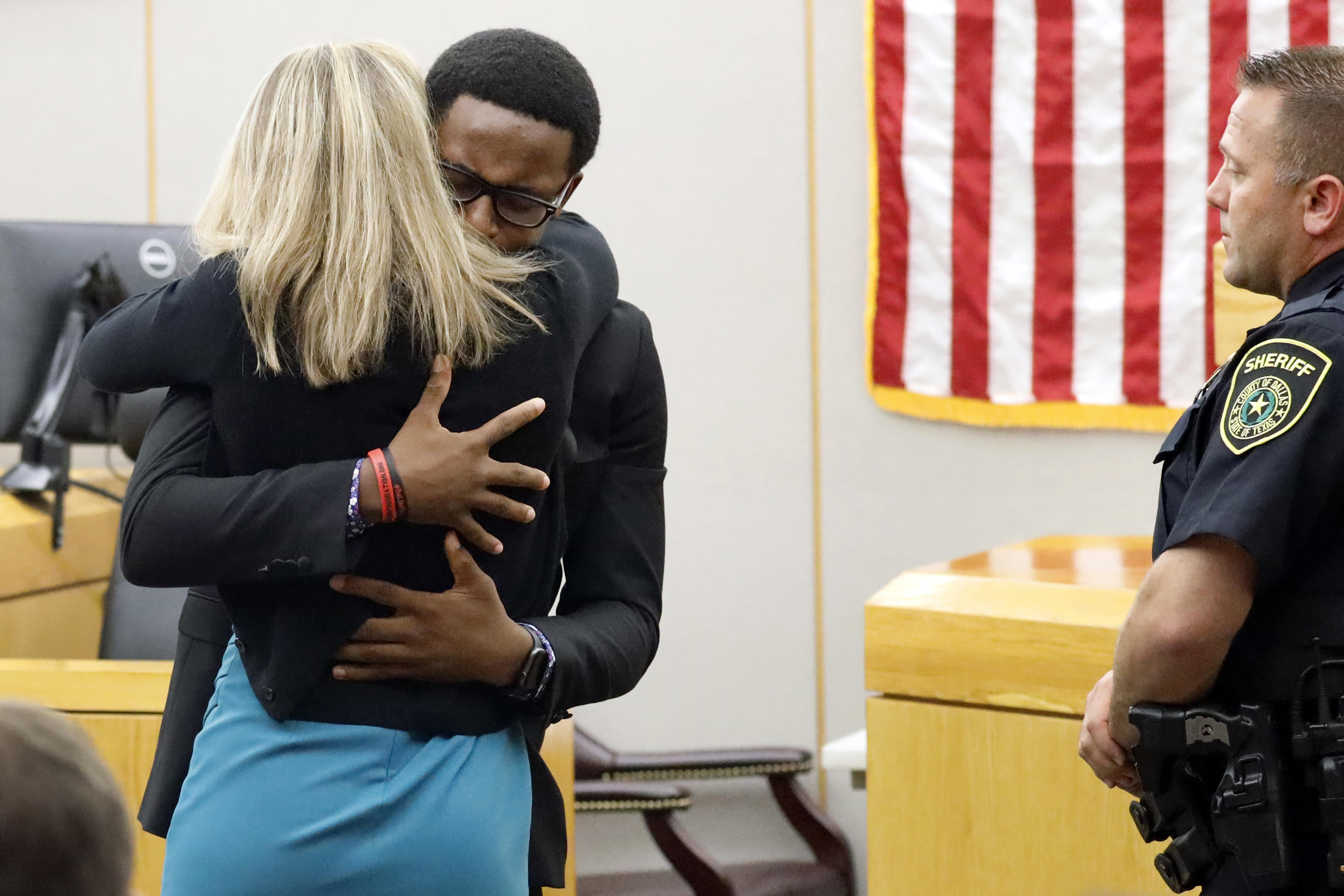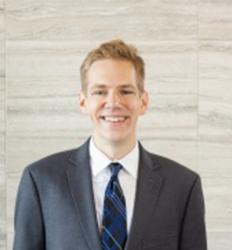The killing of Botham Jean continues to make headlines after Amber Guyger, an off-duty police officer who mistook Jean for an intruder in her apartment, then shot and killed him, has asked an appeals court to toss her murder conviction.
Less prominent is the ultimate act of love offered by Botham’s brother Brandt Jean, who expressed forgiveness toward Guyger, who faces 10 years in prison. CNN reported:
“Going through the trial, I just had to hear it once, and that’s when like my heart kind of opened up,” he said.
After Guyger was sentenced, when he sat on the stand, “I just, you know, let it all out.”
“Gradually, throughout this year, I worked on myself and I understood that this anger shouldn’t be kept inside me,” he told CNN.
His willingness to forgive Guyger will help him apply that spirit of forgiveness to other parts of his life, he said.
“I usually tell myself if I could forgive her then, I could forgive anyone for anything,” he said.
Botham’s death and the trial hasn’t changed him, he said. “It’s just forced me to improve my humility and freed me from anxiety.”
Brandt Jean’s words, however, should rally Christians to pause and think about the way we look at our neighbors – even those involved in the criminal justice system.
The government can’t organize complex social relationships, but their involvement is vital to enact justice per the Constitution. Moreover, it is the church’s mandate to discipline their members, but if one commits a crime against society, it is within the government’s jurisdiction to enact justice.
But the government is not in the business of forgiveness. Paul Heyne puts it another way: “A judge who forgives a convicted criminal is not a candidate for sainthood but for impeachment.” In other words, the government must seek justice because society gives them that power.
Neither the government nor anyone else should be in the business of revenge.
While government schemes play out on behalf of social institutions, Christians must enact love and forgiveness toward victims and criminals. Dallis Willard in “The Divine Conspiracy Continued” wrote: “We must be able to value and love people as they are, whether or not we agree with their views or choices.”
All too often, we relabel people to make them something not human – a suspect, a thief, a murderer. In an ActonLine podcast addressing George Floyd’s treatment by Derick Chauvin, Dr. Anthony Bradley highlighted that relabeling people removes their dignity in the process. In a similar case, Amber Guyger has been attacked and labeled as something less than human and stripped of her dignity in the process.
Bradley correctly places human dignity at the center of a Christian’s mission. With Brandt Jean’s powerful words in mind, forgiveness by individuals is also an essential arm of love that is lacking in the criminal justice system and conversations about crime. Marginalizing criminals’ humanity leads to hate and malice.
1 John 4:20 says “If anyone says, ‘I love God,’ and hates his brother, he is a liar; for he who does not love his brother whom he has seen cannot love God whom he has not seen.” Hating crime is a valid emotion; hating criminals is an expression of our sinful nature.
Our divine task is to grow our individual capacity to love the victims and criminals – a radical upheaval of the modern notion of justice.
The bridge to fill the rift between the role of the legal system and the role of the human heart is not to abolish all prisons, as some Black Lives Matter leaders would suggest. The solution is to seek restorative justice in a powerful articulation of mercy through individuals.
We need to seek justice as love. Leave justice to the courts, but seek love and forgiveness for all parties involved on behalf of the individuals. How do we do this? Brandt Jean knew that only through forgiveness and Christ can real healing come about.
To pursue true human flourishing we need to view every human as being made in the image of God. Promoting mercy and keeping human dignity at the center of the conversation about the criminal justice system is integral to living out the Christian faith.
Mathew 5:7 says “Blessed are the merciful, for they will be shown mercy.” Brandt Jean’s display of forgiveness and call to Christ for Amber Guyger is a powerful alternative to retribution. Displays of Christ-like mercy promote justice as love.

